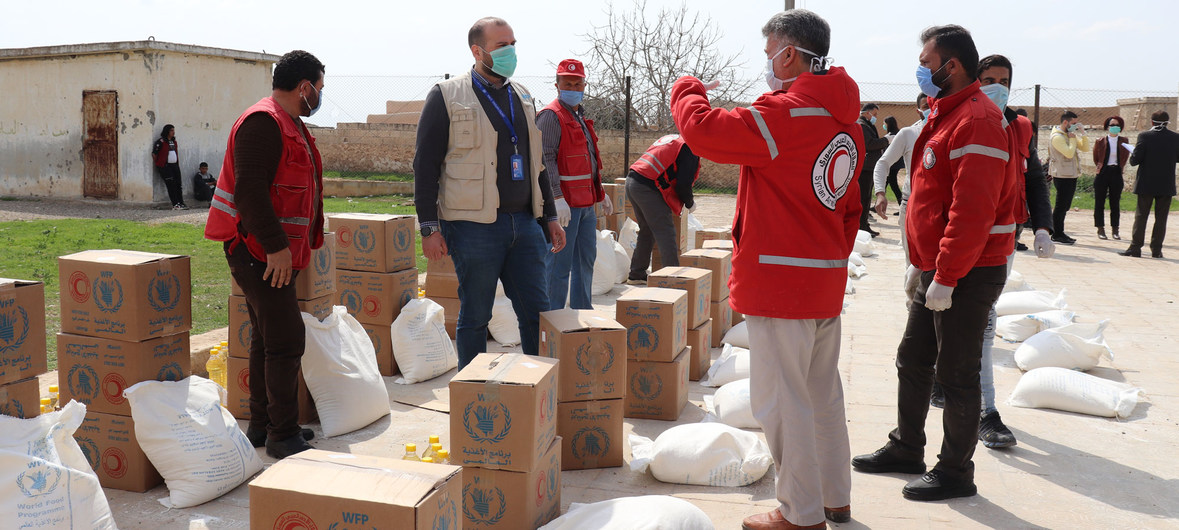However, it said, given the highly globalized nature of food production and supply, commodities need to move from the world’s ‘breadbaskets’ to where they are consumed – and COVID-19-related containment measures are starting to make this more challenging.
“Disruptions are so far minimal; food supply is adequate, and markets are relatively stable,” said WFP Senior Spokesperson, Elizabeth Byrs, noting that global cereal stocks are at comfortable levels and the outlook for wheat and other staple crops is positive for the rest of this year.
“But we may soon expect to see disruptions in food supply chains”, she said, explaining that if big importers lose confidence in the reliable flow of basic food commodities, panic buying could ensue, driving prices up.
‘Behavioural change’ could rock markets
Elaborating, a seasoned grain market analyst at the Food and Agriculture Organization (FAO), quoted anonymously in the report, said the problem is not supply, but “a behavioral change over food security”.
“What if bulk buyers think they can’t get wheat or rice shipments in May or June? That is what could lead to a global food supply crisis,” the analyst said.
For low-income countries, the consequences could be devastating, with long-term repercussions, with coping strategies coming at the expense of such essential services as health and education.
It recalled that when a food price crisis struck in 2008, the world’s poorest households – which typically spend the largest share of income on food – suffered disproportionately.
Using the economic pillar of the Proteus food security index – and taking into account dependency on primary commodities such as fuel, ores and metals for export earnings – the report said that countries in Africa and the Middle East are most vulnerable.
Africa most vulnerable
Africa accounts for the majority of the almost 212 million people in the world who are chronically food insecure and the 95 million who live amidst acute food insecurity, the report noted.
Ms. Byrs added that labour shortages could disrupt the production and processing of labour-intensive crops in particularly, especially in vulnerable countries in sub-Saharan Africa.
Other potential sources of disruption include blockages along transport routes – a particular concern for fresh produce – and quarantine measures that could impede farmers’ access to markets, he explained.
Going forward, the WFP report said that it is essential to monitor food prices and markets, and to transparently disseminate information – thus helping to strengthen government policies while also averting public panic, and social unrest.
It added that in places where food insecurity is caused by restricted access, rather than lack of availability, cash-based transfers – which can often be made through contactless solutions – should be considered as a standard response.
“Planning in-kind food assistance is essential”, the report continued, noting that supply chain disruptions are likely to affect higher-value items first. Such items involve more tiers of suppliers, human interaction and dependency on few suppliers – putting specialized nutritious food more at risk than staples.
























